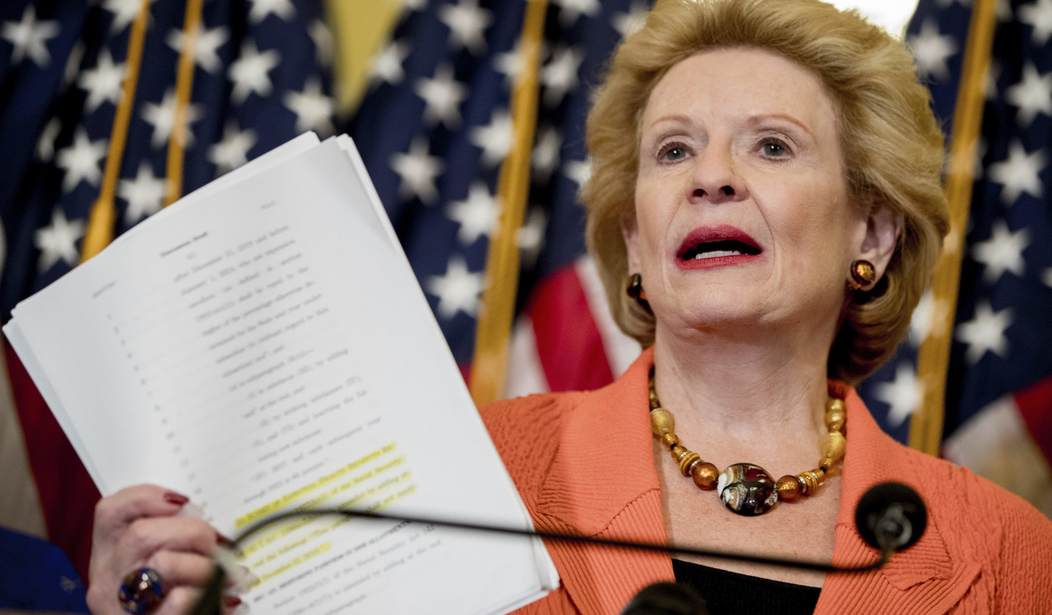WASHINGTON – Sen. Debbie Stabenow (D-Mich.) on Tuesday condemned Michigan developers for allegedly circumventing a 30-year affordable housing agreement in order to charge market-rate rents on some 500 units throughout the Midwest.
Grand Rapids-based Eenhoorn LLC has been accused by housing advocates of foreclosing on at least seven low-income housing projects in Michigan and surrounding states. According to MLive.com, the foreclosures allow the developer to forego 30-year commitments for offering low-income rents, a stipulation the original developers agreed to when accessing federal tax credits to build the properties.
“You can’t just plan foreclosures so that you can circumvent affordable housing,” Stabenow said during a hearing on Tuesday before the Senate Finance Committee. She argued that Michigan families should not be losing out on affordable housing just because developers want to make more money.
Michigan Housing Development Authority director Kevin Elsenheimer in September 2016 asked that the Internal Revenue Service weigh in on the matter by deciding whether the properties can be converted into free-market units. Stabenow pointed out that only the Treasury secretary has the authority to deem the foreclosures illegitimate, for Low Income Housing Tax Credit purposes.
“When Treasury has been notified of the problem, they’ve chosen to take no action,” Grant S. Whitaker, president of the National Council of State Housing Agencies, told the committee on Tuesday.
“We need to fix that in this process,” Stabenow said, while voicing support for legislation meant to address broader issues concerning American affordable housing.
The Affordable Housing Credit Improvement Act of 2017, a bipartisan piece of legislation introduced by Sen. Maria Cantwell (D-Wash.), would make several alterations to the IRS’ low-income housing credit. It would include language that would allow state and local allocating entities discretion over the legitimacy of foreclosures like those seen in Michigan.
The bill has the support of Committee Chairman Orrin Hatch (R-Utah), seven other Republicans, Ranking Member Ron Wyden (D-Ore.) and nine other Democrats.
Stabenow asked Whitaker if the issue in Michigan has cropped up in other states, to which the housing official said it has not happened in Utah, where he resides, and he’s unaware of it happening elsewhere.
“I understand Michigan has that problem, and it may be unique but possibly not either,” Whitaker said, adding that he welcomes additional protections included in Cantwell’s legislation so that state agencies can address the issue, if it surfaces in the future.
“I hope we’re going to be able to move (the legislation) through the process quickly,” Stabenow said.
Granger MacDonald, a Texas-based developer and board chairman for National Association of Home Builders, said that in Texas lenders and syndicators have discretion over foreclosures and, after that, “it’s just not allowed.”
Hatch during his opening remarks noted that in 2015 about a quarter of renter households in America forked over more than half of their incomes in rent, and the burden falls heaviest on low-income families. That year, he said, 25 million children lived in households in which rent “comprised a fairly large share of household income.”
“This is a problem that should be ready for a bipartisan solution,” he said. “We’ve already introduced bipartisan legislation to address some of these issues. And, many are hopeful that cooperation on these efforts will continue.”
Meanwhile, Sen. Bob Menendez (D-N.J.) criticized the president’s fiscal 2018 budget, which slashes the Department of Housing and Urban Development’s funding by about $7 billion. The New Jersey lawmaker said that “cutting public housing funding to the bone,” eliminating a quarter-million housing choice vouchers and requiring low-income households to pay more in rent “would turn this crisis into an epidemic.”









Join the conversation as a VIP Member